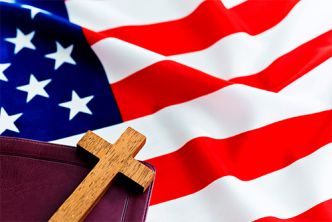 Timothy Keller, founder of Redeemer Presbyterian Church in New York, published an op-ed in the New York Times in September asking, “How Do Christians Fit Into the Two-Party System? They Don’t”. He writes:
Timothy Keller, founder of Redeemer Presbyterian Church in New York, published an op-ed in the New York Times in September asking, “How Do Christians Fit Into the Two-Party System? They Don’t”. He writes:
“While believers can register under a party affiliation and be active in politics, they should not identify the Christian church or faith with a political party as the only Christian one.”
Keller suggests that by tying religion to a political party, it can be exploited by those seeking power. And when you assign a church a political party, it makes religion another political machine. He also argues that political positions are often practical wisdom, not matters of biblical command.
However, Christians cannot ignore politics. Keller argues that ignoring politics is, in and of itself, a political statement; By being apolitical you are essentially stating, through inaction, that the status quo is ideal. So long as there are poor, tired, and hungry people, the status quo is not satisfactory. Being a good Christian means helping those less fortunate. They must always strive to do better.
We Have to Work Together in Politics
The Bible commands us to lift up the poor and to love your neighbor. It’s imperative that believers stand up for the rights of the poor and oppressed. Proverbs 31:8-9 says, “Speak up for those who cannot speak for themselves, for the rights of all who are destitute. Speak up and judge fairly; defend the rights of the poor.”
Yet, the two main political parties have very different viewpoints on how to help. Should the government seek to even the playing field by offering financial assistance to the needy? Or should the government take a tough love approach, and help the poor help themselves? The schism has divided the two major political parties for a generation.
In an increasingly politically polarized world, bipartisanship has dropped significantly. In 2008, Republican presidential nominee John McCain famously considered Democrat Joe Lieberman as his running mate in a so-called “unity ticket”. It is just ten years later, and yet the idea of a Republican and Democrat running a national campaign together is nearly impossible to fathom.
The recent Brett Kavanaugh hearing exemplifies our political divide. Before the hearings, it felt as if each Senator on the committee had made up their mind down party lines. Democrats were unwilling to listen to Kavanaugh and consider his record, and Republicans outright dismissed Blasey Ford’s allegations. Unsurprisingly, the vote came down largely upon party lines.
How can Americans learn to work together and have differing views when their elected leaders seem so unwilling to reach across the aisle? That’s a really good question. The early Christians didn’t try to take power away from the Romans, but they worked for the good of the believers. Today, churches can serve others. They can encourage members to vote, but not who to vote for.
Focus on Common Goals
For churches to work together apolitically, pastors have to actively help the congregation avoid political discourse and reframe the focus to the bigger picture. We see this after tragedies. People of all faiths came together after a hurricane flooded Houston, a tornado wiped out Joplin, Missouri and fires ravaged California. We can come together for the common good.
When politics do come up in church, people need to think about learning opportunities, not debate. We can learn from each other and have a positive impact without creating partisan lines. We can handle politics with tact and respect, despite differences. How can the church handle politics without being political? Very carefully.
Add Your Comment